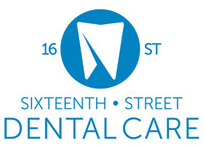Do your gums bleed when you brush or floss your teeth? If they do, you should schedule a teeth cleaning appointment immediately. And if your teeth and gums appear to be in perfect health, you should still have your teeth professionally cleaned regularly, even if you brush and floss every day.
Why?
Gingivitis
Gingivitis is the medical term for early gum disease, or periodontal disease. In general, gum disease can be caused by long-term exposure to plaque, the sticky but colorless film on teeth that forms after eating or sleeping.
Gum disease originates in the gums, where infections form from harmful bacteria and other materials left behind from eating. Early warning signs include chronic bad breath, tender or painful swollen gums and minor bleeding after brushing or flossing. In many cases, however, gingivitis can go unnoticed. The infections can eventually cause the gums to separate from the teeth, creating even greater opportunities for infection and decay.
Although gum disease is the major cause of tooth loss in adults, in many cases it is avoidable.
If gingivitis goes untreated, more serious problems such as abscesses, bone loss or periodontitis can occur.
Periodontitis is treated in a number of ways. One method, called root planing, involved cleaning and scraping below the gum line to smooth the roots. If effective, this procedure helps the gums reattach themselves to the tooth structure.
Pregnancy has also been known to cause a form of gingivitis. This has been linked to hormonal changes in the woman’s body that promote plaque production.
Periodontal Disease
The word periodontal means “around the tooth”. Healthy gum tissue fits space is usually three millimeters or less.
Periodontal diseases are infections that affect the tissues and bone that support teeth. As the tissues are damaged, the sulcus develops into a pocket that is greater than three millimeters. Generally, the more severe the disease, the greater the pocket depth and bone loss. The enlarged pockets allow harmful bacteria to grow and make it difficult to practice effective oral hygiene. Left untreated, periodontal disease may eventually lead to tooth loss.
Warning Signs :
- Gums that bleed easily
- Red, swollen or tender gums
- Gums that have pulled away from your teeth
- Persistent bad breath
- Pus between the teeth and gums
- Loose or separating teeth
- A change in your bite
- A change in the fit of your partial dentures
Risk Factors :
- Smoking or Chewing Tobacco
- Systemic diseases, such as diabetes, blood cell disorders, HIV
- infection and AIDS
- Medications
- Dry Mouth
- Defective dental fillings, crowns and bridges
- Crooked and crowded teeth
- Puberty, pregnancy and oral contraceptives
- Genetics
- Parents with periodontal disease
Treatment :
- Scaling and Root Planing
- Medicated Mouth Rinse
- Local Antibiotic Placement Arestin
- Periodontal Maintenance
- Referral to Periodontal Specialist
Scaling and Root Planing
Some cases of acute periodontal (gum) disease that do not respond to more conventional treatment and self-care such as flossing may require a special kind of cleaning called scaling and root planing.

